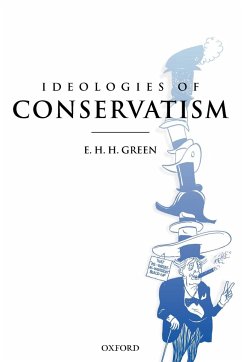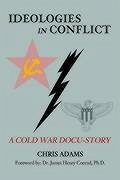John Stuart Mill described the Conservatives as 'the stupidest party', yet they governed the UK for nearly three-quarters of the twentieth century. Conservative leaders typically have been and are explicitly anti-intellectual, yet the party is not without an intellectual history of its own.
Ideologies of Conservatism charts developments and changes in the nature of Conservative political thought and the meaning of Conservatism throughout the twentieth century. Ewen Green's penetrating study explores the Conservative mind from the Edwardian crisis under Balfour to the Thatcherite 1980s and beyond. It examines how Conservative thinkers, politicians, and activists sought to define the problems they faced, what they thought they were arguing against, and what audiences they
were seeking to reach. This is the only study which blends the history of Conservative thought with the party's political action, and it offers significant new insights into the political culture of the 'Conservative Century'.
Hinweis: Dieser Artikel kann nur an eine deutsche Lieferadresse ausgeliefert werden.
Ideologies of Conservatism charts developments and changes in the nature of Conservative political thought and the meaning of Conservatism throughout the twentieth century. Ewen Green's penetrating study explores the Conservative mind from the Edwardian crisis under Balfour to the Thatcherite 1980s and beyond. It examines how Conservative thinkers, politicians, and activists sought to define the problems they faced, what they thought they were arguing against, and what audiences they
were seeking to reach. This is the only study which blends the history of Conservative thought with the party's political action, and it offers significant new insights into the political culture of the 'Conservative Century'.
Hinweis: Dieser Artikel kann nur an eine deutsche Lieferadresse ausgeliefert werden.
Review from hardback edition ... erudite ... important, well-organized and lucid ... Green's authoritative handling of the intricacies of economic thought is extremely valuable and his material is clearly and thematically presented. Ideologies of Conservatism should be vital reading not only for historians of the Conservative party and of Conservative thought but for those interested in the intellectual history of Britain and in the fortunes of corporatist ideas in the twentieth century. MODERNISM/modernity








